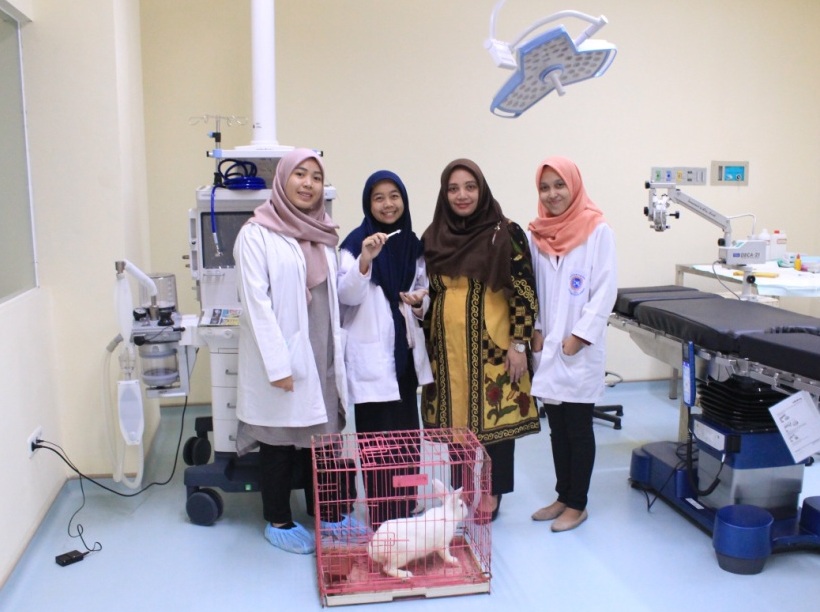UNAIR NEWS – Damage to the cornea is the second leading cause of blindness in the world after cataracts. Basic Health Research by the Ministry of Health in 2013, recorded 966,329 people of Indonesia suffered blindness. The cornea is a protective layer in the eye that is translucent. Corneal damage can occur due to infections such as from trachoma and leprosy, lack of nutrition in the cornea, and trauma. Until now, the gold standard for handling permanent damage to the cornea is by keratoplasty, transplanting the donor cornea to the patient. However, this method is not perfect because of limited corneal donors.
In Indonesia, the Indonesian Eye Bank data in 2017 shows that only 5-10 percent of blindness patients in Indonesia can undergo a corneal transplant. Furthermore, there are also some weaknesses in this method. So an alternative treatment needs to be sought to overcome the problem. This problem inspired a team of UNAIR PKM Research team. It is led by Novi Dwi Widya Rini and Marsya Nilam Kirana and Tri Astutik as members with Dr. Prihartini Widiyanti drg., M.Kes., S.Bio., CCD as their supervisor. They innovate and make artificial corneas.
About the research, Novi said that the artificial cornea is made from collagen with the addition of chitosan and sodium hyaluronate. Novi, team leader, explained that there was a reason for choosing the material. Type I collagen, which is the largest component of the artificial cornea, she explained, can improve the biocompatibility and mechanical strength of the material.
“Collagen is also able to improve the hydrophilic nature of corneal replacement biomaterials, which makes the topographic environment suitable for cellular interactions and tissue specificity,” she explained.
Chitosan, she continued, has excellent properties in bioadhesion, permeability, toxicity, and ocular tolerance. Chitosan added to collagen, added Novi, can improve the biodegradation time and improve the mechanical properties and stability of collagen. Sodium hyaluronate is also said because it is known to enhance the percentage of light transmittance.
“The trial for this artificial cornea is not only done in vitro or lab tests but also in vivo tests on experimental animals, implanted in rabbits,” she said.
In the end, Novi also said that the research her team did is expected to be biocompatible, natural to implant, and biodegradable. It is also expected to fulfill the functions of the cornea without causing inflammation.
“It can become a network engineering that can overcome vision problems, especially in Indonesia,” she concluded.
Author: Artificial Cornea PKM-PE TEAM Editor: Nuri Hermawan





